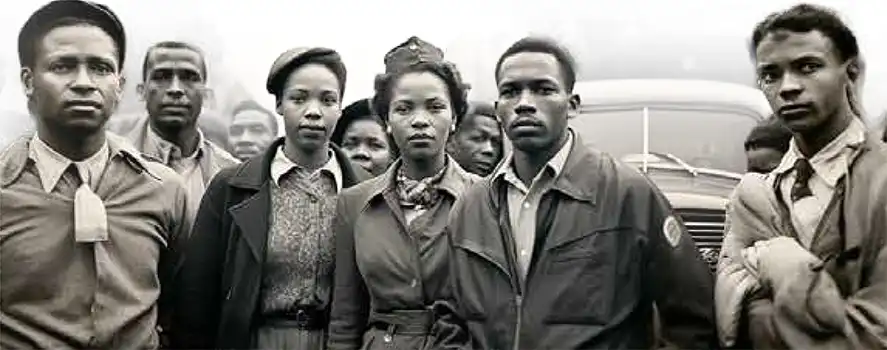The Insurrection Act of 1807, signed by Thomas Jefferson in 1807, is a federal law that authorizes the President of the United States to send the nation’s military and federalized National Guard troops within the United States to defeat civil disorder, insurgence, or rebellion. It enables the president to quell riots across the nation. It has a mixeduse history. The Insurrection Act was famously invoked by President Eisenhower in Little Rock, Arkansas in 1957 to quash white resistance to the desegregation of the high school by the Little Rock Nine and was used again by President Kennedy in 1962-63 in Mississippi and Alabama to conquer the enraged white populace’s opposition to desegregation of educational institutions there.
A separate but associated law, the Posse Comitatus Act, was used in the years before the Civil War relative to the Fugitive Slave Act. Insurgency fears have historically focused on the rising up of enslaved Black people in America. Since the concept of slavery inevitably inspires an impulse for freedom, all African-descended individuals were (and in some cases continue to be) feared as potential insurrectionists. When Congress passed the Civil Rights Act of 1871 it was referred to as the “Ku Klux Klan Act” because it contained a new “insurrection provision.” Bestowed with this new power, the president instantly ordered federal military troops to enforce civil rights in the South. When this led to the arrest of hundreds of Klansmen, white southerners were outraged and insisted that this interfered with state’s rights; the former slaves and their supporters disputed this and maintained that the federal government was deliberately failing to protect them.
Six years later the federal government was forced to admit that the governments of several southern states were being aided rather than impeded in their political abuses by the presence of the military, so the units were withdrawn without any helpful replacement strategy. Once again the southern Black people were abandoned by their central government to face inflamed white hatred. Even when the Insurrection Act was implemented to enforce the desegregation of southern public schools, segregationists like Alabama governor George Wallace declared the courageous Black students to be “insurrectionists.”
Nevertheless, when his actions defied the law, no one dared to refer to him as such. President Lyndon B. Johnson imposed the Insurrection Act during the “Long Hot Summer” riots against racial injustice of 1967, and in 1968, to neutralize what he referred to as “race riots” around the country. When in 1992 a jury acquitted all the officers who had beaten Rodney King, the Los Angeles Black community exploded in frustration and agony, and the act was employed against them.
The Act has often been utilized as a cudgel, as well as to suppress legitimate dissent against systemic racism. After Hurricane Katrina President George W. Bush eagerly offered to use it in New Orleans, but the officials there declined. As a result, the urgently needed relief funds they did seek were slow to arrive and fewer were granted than needed. It is worth noting President Trump’s bullying exhortations to take advantage of the Insurrection Act to quell the nationwide Black Lives Matter demonstrations over George Floyd’s murder. After the lynching of Mr. Floyd, thenPresident Trump directed the furious suppression of the peaceful protest in Lafayette Park in Washington, D.C. During these weeks of grief Trump repeatedly urged the military and law enforcement officials to combat protesters physically.
However, on January 6, 2021, when white radical right-wing extremists rioted in an attempt to overturn Congress and a legitimately victorious election, Trump defiantly refused to intervene, despite the pleadings of advisors to deploy the Insurrection Act against the white rioters even though a reasonable interpretation of the Act’s authors intention would indicate that a crisis of such consequence would be an example of what they feared when they wrote and passed the Act. The totality of these laws was allegedly used is alleged to protect Black lives, but they have become a symbol of oppression and control, a legal weapon used to suppress Black peoples’ freedom of speech and calls for fairness, justice, and full rights of citizenship for Black people in this country. After generations of slavery, Black Americans have now suffered another 150 years of brutality, economic injustice, and a disgusting system of criminal detention.



